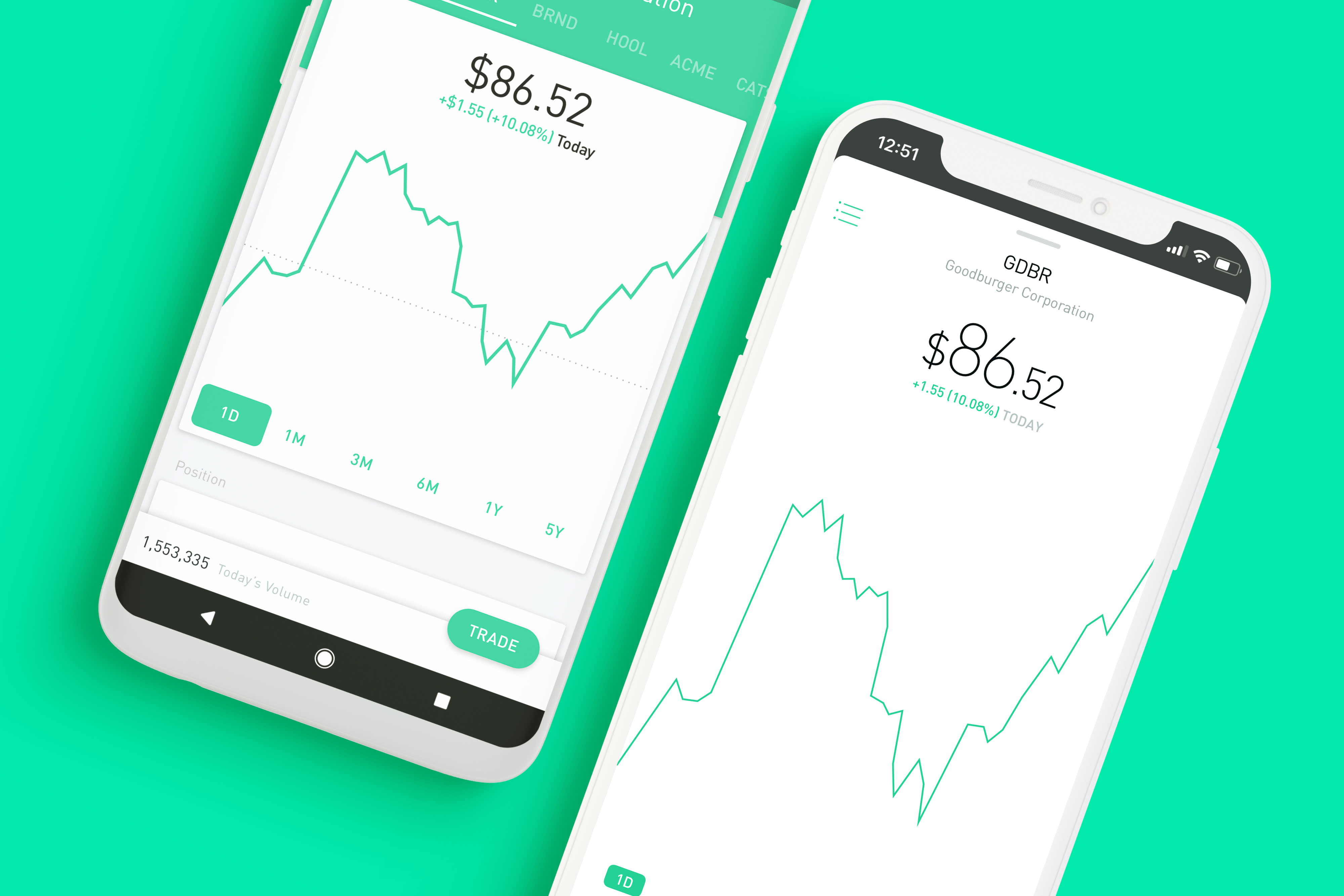The Robinhood app on IOS and Android
Source: Robinhood
As U.S. markets opened Monday morning, 30-year old engineer Vivek Sevak was ready to cut his losses.
The recreational trader had put money in a market-short exchange traded fund, and was looking to sell. But when he logged into his Robinhood account to make the trade, he found an error message. The stock-trading platform was down.
“It’s frustrating. You’re just sitting there, stuck on the sidelines,” Detroit-based Sevak told CNBC in a phone interview. “I had to watch those ETF prices go down and just eat the losses.”
Sevak was one of potentially millions unable to execute trades on the Robinhood app on Monday. The online brokerage firm said it experienced a “system-wide outage” that lasted through the close. Meanwhile, the Dow Jones Industrial Average posted its biggest percentage gain in more than a decade.
“We are working to resolve this issue as soon as possible,” the company said in a message to clients Monday. With an hour left in the trading day, Robinhood said the issue had been “identified and a fix is being implemented.” As of 10 p.m. ET Monday, the platform was still down.
Sevak was not alone. Many of Robinhood’s 10 million users took to Twitter and Reddit to blast the start-up. Some said they would leave the platform, while others threatened a class-action lawsuit.
Legally, Robinhood may have protected itself through a 44-page customer agreement form. By clicking “I agree” when signing up for the app, users consent to these potential losses — even if they don’t read past the first line.
“For the customers, it’s most likely tough luck,” said James Angel, associate professor at Georgetown’s McDonough School of Business. “This won’t stop the class-action lawyers from launching nuisance lawsuits, however.”
On the fifteenth page of the agreement, Robinhood outlines that it will not be responsible for “temporary interruptions in service due to maintenance, Website or App changes, or failures” and isn’t liable for extended interruptions due to failures “beyond” the company’s control. That includes computer viruses, “forces of nature,” labor disputes and “armed conflicts.”
“Robinhood does not warrant that these channels will be available and error free every minute of the day,” according to the document.
Record trading volume
Robinhood is not the only brokerage firm to experience glitches.
Last week, Fidelity, Charles Schwab and TD Ameritrade said they had technical difficulties as stocks plunged, fueled by investor panic surrounding the fast-spreading coronavirus. The market attempted a rebound Monday from the worst week for stocks since the financial crisis. All three major averages climbed on Monday, closing out of correction territory and the Dow Jones Industrial Average gained nearly 1,300 points — the most ever in a single session.
One factor that could be exacerbating platforms’ technical issues may be higher-than-average trading volumes. Last week, the SPDR S&P 500 ETF Trust, or SPY, traded more than 200 million shares — three times above its 30-day average volume of 97.3 million shares.
While there have been plenty of glitches over the years, Angel said he hasn’t seen anything this severe since trading entered the electronic era. The “real damage” to Robinhood is to their reputation and potential regulatory push back, he said.
Robinhood is a broker dealer, and is required by Financial Industry Regulatory Authority (FINRA) and the U.S. Securities and Exchange Commission to have a back-up plan in case one of these “temporary interruptions” pop up. A so-called business continuity plan requires the firm to provide “prompt and accurate processing of securities transactions.”
“Even though they may not be liable to the customers, they may still be dinged by FINRA,” Angel said.
The company was last valued at $7.6 billion after a Series E funding round last year led by DST Global. Venture capital firms like New Enterprise Associates (NEA), Sequoia and Ribbit Capital are also investors. Robinhood ushered in millions of millennial traders by offering free equity, options and cryptocurrency trading.
Ryan Gilbert, general partner at Propel Ventures, said this is an example of start-up “growing pains.” But the start-up script may not work as the company grows in scale.
“When you become this size, it’s inexcusable, especially in a stock market that’s as schizophrenic as it has been lately,” Gilbert said. “They built a phenomenal company. Now they have to live up to the valuation.”
The bar is especially high as Robinhood’s larger competitors follow its lead by cutting trading fees. Charles Schwab, TD Ameritrade, Fidelity and E-Trade are all offering free trading after slashing commissions last year.
“Zero commissions are not as persuasive as they once were. You can get get zero commissions at all the major brokerage firms,” Georgetown’s Angel said. “Computer breakdowns are a way of life in the modern world. The real question is: how long will the outage last?”
For Sevak, one missed trading day was long enough.
“Based on the fact that it crashed on the most active trading day in recent memory, I definitely won’t be using Robinhood anymore,” he said. “When they re-open. I’m moving all of my funds.”
